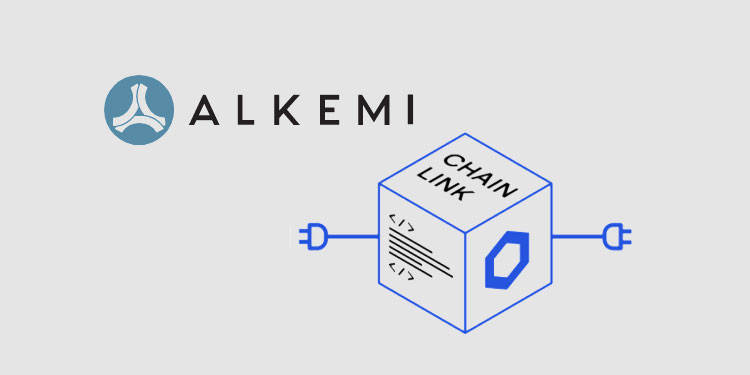Alkemi, a professional open liquidity network for cryptocurrency, announced today it has integrated with Chainlink to leverage its network of decentralized oracles. Chainlink’s protocol is facilitating trusted marketplaces for obtaining quality oracles, which is quickly becoming the de-facto standard in the Oracle-as-a-Service category. By utilizing Chainlink, Alkemi will benefit from a highly precise and reliable stream of crypto-asset price data, positioning the company well as an open-prime broker that meets the stringent requirements of institutional capital allocators.
Oracles
Blockchain-based smart contracts allow for a myriad of new applications and with it, new technical challenges in bridging these smart contracts with real-world data that is external to the blockchain. Oracles solve this problem by allowing smart contracts to fetch inputs from outside the blockchain (via external data feeds and APIs) and sign claims about the state of the world — effectively making smart contracts externally aware.
This, however, introduces an element of trust, and as an open network, Alkemi cannot rely on off-chain price information from a single source of truth. Chainlink, operating as a fully decentralized network, decreases the likeliness of false or inaccurate data reporting while simultaneously preventing network downtime by aggregating data responses from multiple oracles that query a variety of data sources.
As articulated in Chainlink’s whitepaper, “this limits the need for trust in any single party and allows the tamperproof quality valued in smart contracts to be extended to the end-to-end operation between smart contracts and the APIs they rely on.”
Features of Chainlink integration with Alkemi:
- Plans to move to off-chain data aggregation and computation to reduce costs associated with carrying out these activities on-chain;
- Strong guards against multiple attack vectors (e.g., sybil attacks such as freeloading), with the use of a commit-reveal scheme where each oracle commits its encrypted answer and is decrypted only when enough oracles have submitted their answers;
- Reputation system where good behavior is incentivized because performance and reputation is public, and bad behavior incurs penalties (this also ensures high availability and performance);
- Designed with modularity in mind as every system component is upgradeable so they can be replaced when better techniques and competing implementations arise.
First Use-Case
Alkemi has initially integrated Chainlink for the lock-and-release mechanism contained within its user-generated smart contract token reserves (wallets). The user (liquidity provider) can specify the time duration for their assets to be locked into these token reserves.
In addition, they can specify a price threshold, which once breached, causes the assets to become unlocked and available for withdrawal ahead of the time expiry lock.
An oracle price feed is needed in order to determine if the price condition is met for funds to be unlocked. Chainlink provides Alkemi with a way to securely fetch off-chain data via its network of decentralized oracles without the need to run its own.


















